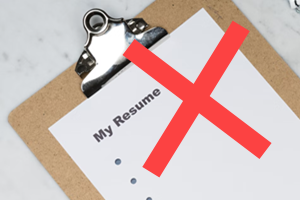How to Get A Job Workshop
For several editions, we’re devoting the Q&A feature to a workshop. Instead of Q&A, this limited series of columns will be “All Answers,” or, if you will, “How To.” This week we continue with How to Get A Job: Network? I don’t know anybody! I hope you find this deep dive helpful, and that you will — as always — dive into the discussion in the Comments section below! — Nick
How to Get A Job: Network? I don’t know anybody!
 Every survey ever done shows that the single most successful path to a new job is personal contacts. Yet, time and again people complain to me that they just don’t know anybody who can help them gain entry to a particular company.
Every survey ever done shows that the single most successful path to a new job is personal contacts. Yet, time and again people complain to me that they just don’t know anybody who can help them gain entry to a particular company.
And that’s flat-out wrong.
Welcome to your new network
I’m going to enumerate some of the many people you know who can help you.
- The reporter who wrote the story about the company you want to work for.
- The manager featured in the article about how that company beat profit projections.
- The friend whose friend works in the marketing department of your target company.
- The accountant who works for the CPA firm that handles payroll for the company.
- The purchasing manager who places orders with the company every week.
- The lawyer who knows the lawyer who represents the company.
- The stock broker who knows the analyst who follows the company’s performance.
- The engineer who wrote the article about the new technology the company uses.
- The sales rep who answers the phone to help customers in your region.
But, you say you don’t know all those people? That’s a minor detail! You just don’t know them yet. You probably know at least one of them, and the rest you can get to know by picking up the phone. Anyone you know about you can also get to know.
Get wired
If you try to avoid this critical step in your job search, you’re kidding yourself about where jobs come from. While you’re crying that you lost out to somebody who was wired for the job, you’re doing nothing to be the wired candidate for the next one. Jobs come from insiders that help you get the inside track because you got to know them first.
Contacts like these are on the critical path to your next job because they have the inside story about the companies and the managers you want to work for. You need to talk with them. This is how the best headhunters glean the hard-to-find information they use to land new clients and to find the best job candidates for those clients. They get to know the people they need to know.
Get to work getting to know people
People love to talk about their business. You’ve heard me say it before: You can almost always get someone’s attention by talking shop with them. (You don’t need to do the icky kind of networking!) By asking intelligent (well-researched!) questions about their work. By expressing your educated interest in work they do that you want to do, too.
As you start to gather their insights, you will learn a lot, and you will formulate more good questions. This leads you to talk to more people. “Well, gee, who else do you recommend I talk to in the company regarding the marketing department?” This is how you get in the door through personal referrals.
If this were easy, everybody would be doing it
You’ll know you’re doing it right when your supply of new friends overflows, and when you’re talking with them about their work — not about getting a job.
Here are a few of the things you should not say:
- Let me tell you about myself…[and start reciting your resume]
- Do you know about any open jobs?
- Can you please pass my resume on to the company [or the manager or the HR department]?
- Can you get me an informational interview?
It’s all about personal contacts, but not about awkward, mercenary networking. It’s about establishing a credible interest in a company, in educating yourself deeply, and in helping the business. Never ask directly for a job lead—you’ll just be referred to the HR department.
So get to work. Stop saying you don’t know anybody, or you’ll never land a great job through personal contacts — which is how most people find jobs.
Sorry, I didn’t say it was easy. If this were easy, everybody would be doing it.
Then what?
I throw it out to you!
- What other kinds of new contacts are on the “critical path” to your next job?
- Who can you contact next? (Not to talk about a job!)
- What should you not say to new people you meet?
- What do you say to new contacts you make, to help educate yourself about the company and to help get you to the right hiring manager?
Let’s talk about “Then what?” The Comments section below awaits your ideas, suggestions, frustrations questions and discussion. We’re all here to figure it out.
: :




 “That just showed up in my inbox,” a subscriber wrote me. “Sigh… who needs your advice when I can apply for hundreds of jobs with just one click?”
“That just showed up in my inbox,” a subscriber wrote me. “Sigh… who needs your advice when I can apply for hundreds of jobs with just one click?”
 The first step on your job search is to become aware of the myths of job hunting. The first myth is that your resume will get you in the door for a job interview.
The first step on your job search is to become aware of the myths of job hunting. The first myth is that your resume will get you in the door for a job interview.
 Nice to hear from a “headhunter,” but I’m more concerned about what a candidate should do when you won’t disclose your client. Why on earth would you not tell a candidate who your client is? Aren’t you proud of the client?
Nice to hear from a “headhunter,” but I’m more concerned about what a candidate should do when you won’t disclose your client. Why on earth would you not tell a candidate who your client is? Aren’t you proud of the client?